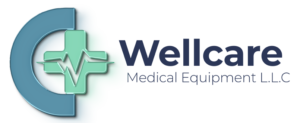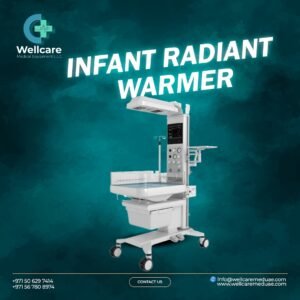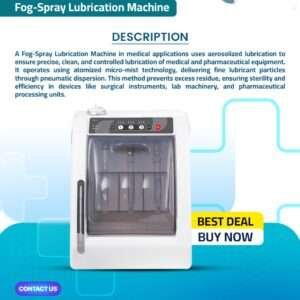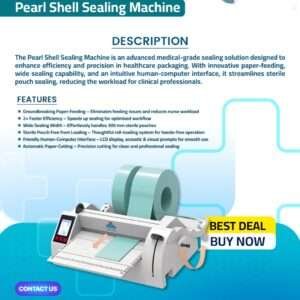ENT (Ear, Nose, and Throat) equipment is vital in the healthcare system of Nigeria, particularly due to the prevalence of ENT-related conditions. The importance of such equipment cannot be overstated as it ensures accurate diagnosis, effective treatment, and improved patient outcomes for a range of conditions that affect these critical areas of the body. In Nigeria, where healthcare challenges are significant, access to advanced ENT equipment helps bridge the gap between basic healthcare and specialized treatment, enhancing the quality of care in both urban and rural settings. One of the primary benefits of modern ENT equipment is its ability to improve diagnostic accuracy. Devices like otoscopes, laryngoscopes, and endoscopes allow healthcare professionals to view and assess the inner workings of the ear, nose, and throat, identifying issues such as infections, blockages, tumors, or structural abnormalities. Early detection of conditions like ear infections, sinusitis, or throat cancers can prevent complications and promote more successful treatments, leading to better patient outcomes. For a country like Nigeria, where access to specialized healthcare may be limited, the availability of advanced ENT equipment is crucial in improving patient care and reducing the burden of untreated conditions. Furthermore, ENT equipment plays a critical role in surgical procedures. Equipment such as microscopes, suction devices, and surgical tools are essential for performing delicate ENT surgeries with precision. Whether it's a tonsillectomy, sinus surgery, or the removal of growths from the ear or throat, modern surgical equipment ensures that these procedures are conducted with minimal risk and greater effectiveness. In a country where healthcare resources are often stretched, having access to reliable ENT surgical equipment can drastically improve the success rates of surgeries, reduce recovery times, and lower the likelihood of complications. Additionally, the importance of ENT equipment in Nigeria extends to preventive care and routine check-ups. Many ENT conditions, if left untreated, can lead to long-term complications, including hearing loss, breathing difficulties, or chronic pain. Regular screening using proper diagnostic equipment can help catch these issues early, allowing for timely intervention. This is particularly important in a country where many patients may delay seeking treatment due to lack of access or awareness. By equipping healthcare facilities with up-to-date ENT tools, healthcare providers can offer routine screenings that significantly reduce the risk of severe health issues. In conclusion, ENT equipment is essential in Nigeria’s healthcare system, contributing to both the diagnosis and treatment of a wide range of conditions affecting the ear, nose, and throat. Its importance spans from enhancing the precision of surgeries to enabling early detection and preventive care. Investing in ENT equipment not only improves the quality of healthcare in Nigeria but also ensures that more people receive timely and effective treatment, ultimately leading to better health outcomes across the population.
the key types of ENT (Ear, Nose, and Throat) equipment provided by Well Care Medical Equipment LLC in Nigeria:
Otoscope:
- Used to examine the ear canal and eardrum.
- Helps in diagnosing ear infections, perforated eardrums, and ear blockages.
Laryngoscope:
- Used for visualizing the larynx (voice box) and vocal cords.
- Essential for diagnosing throat conditions and performing intubation.
Endoscopes (Nasal and Ear Endoscopes):
- Allows detailed visualization of the nasal passages, sinuses, and ear canals.
- Used for diagnosing sinus infections, polyps, and other nasal or ear conditions.
Audiometers:
- Measures hearing ability and detects hearing loss.
- Vital for diagnosing hearing impairments and testing auditory functions.
Rhinoscope:
- Used for examining the nasal cavity and sinus openings.
- Helps detect nasal blockages, polyps, and sinus infections.
ENT Surgical Instruments:
- Includes specialized tools such as forceps, suction devices, and scalpels used in ENT surgeries (tonsillectomy, sinus surgery, etc.).
- Ensures precision in surgical procedures involving the ear, nose, and throat.
Microscopes:
- Used in ENT surgeries for magnified views of small structures in the ear, nose, and throat.
- Critical for microsurgeries, especially ear surgeries like tympanoplasty.
Nasal Suction and Irrigation Systems:
- Removes blockages and clears nasal passages.
- Used for treating sinusitis, nasal congestion, and post-surgical care.
Tympanometer:
- Measures middle ear function and detects fluid in the ear or eardrum perforations.
- Important for diagnosing ear infections and conductive hearing loss.
Diode Lasers for ENT Surgeries:
- Used in minimally invasive ENT surgeries for cutting and tissue removal.
- Commonly used in procedures like removing polyps or reducing enlarged tonsils.
These types of ENT equipment provided by Well Care Medical Equipment LLC support various diagnostic and surgical needs, enhancing ENT care across healthcare facilities in Nigeria.
What types of ENT equipment does Wellcare supply?
Wellcare offers a wide range of ENT equipment, including diagnostic tools, surgical instruments, endoscopes, otoscopes, and treatment units for hospitals and clinics.




